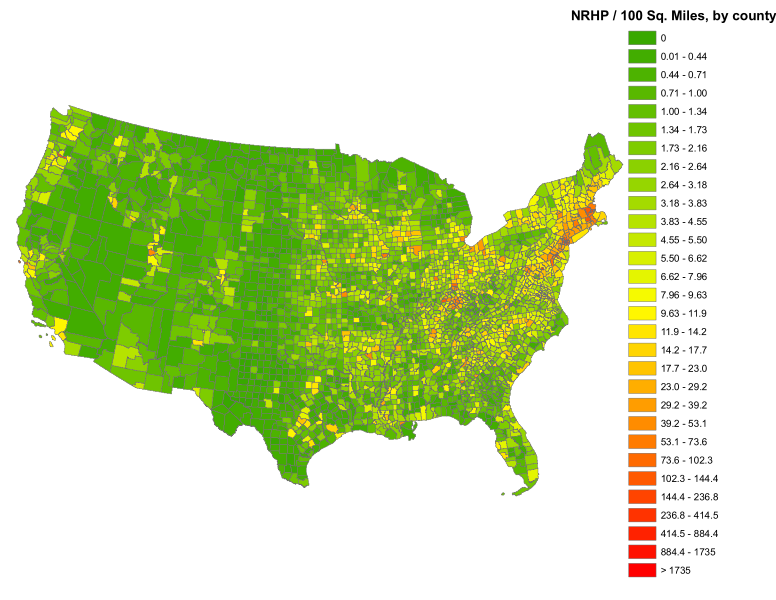Since “DSPOADHCFMCSOU” doesn’t spell anything useful, I’m using “Project Retrain” as the working title for this project.
Some of you may recall a tweet by me a few weeks ago, in which I “announced” a new project and called for volunteers. Despite not saying anything else about that project besides its lengthy title, many people said “I’m in!” or “that sounds grant-worthy”—all pretty darn fine responses for something as yet undescribed. So, I figured the best place to describe it (in brief) would be here, because what I’d like to do at THATCamp is gather all the folks I’d be asking for help/input anyway and brainstorm (or flat out plan) parts of this project.
NOTE: This may seem to go against the more hack, less yak directive, but I want to walk away from THATCamp with a loosely constructed advisory team, an outline of first phase content and actions, milestones, and a general action plan. That’s pretty hacky although there’s yakky to get there. And if this doesn’t happen in a session of any sort, I will track people down in the hallways. You’ve been warned.
My initial thoughts…
Self-paced: the idea is to create modules (more on that under “DH Curriculum”) that contain a series of topics organized into bite-sized lessons; here I’m thinking of the scope of content within the Sams Teach Yourself “in 24 hours” series, which I have plenty of experience writing, that tries to ensure the content of each lesson can be digested within an hour (although time for end-of-lesson exercises can take longer).
So, for argument’s sake, let’s say one of the modules is “Basic Web Site Construction”. A topic might be: “Setting Up a Web Server (hosted version)”. The bite-sized lessons might be: what to look for in a hosting provider, understanding client-server communication, exploring your control panel, finding an FTP client, uploading your first file. If the topic is “Setting Up a Web Server (geek version)”, the bite-sized lessons might start with installing XAMPP and moving forward with that. Also under “Basic Web Site Construction” would include initial forays into (X)HTML, CSS, and so on.
I think you get the idea of the granularity of the content. I have a ton of my own content I can repurpose, and there’s open access content to be had, or crowdsourced (hint: you’re the crowd). While the topics within the modules would be linear, the modules themselves would not necessarily be linear (and you could be working on more than one module at a time) although I do have this idea wherein completion of X number of modules would prepare a person to attend Y scholarly institute or apply for Z grant (e.g. “you’ve completed basic text encoding and it’s almost summertime? great! think about attending DHSI or an NEH-funded workshop for the next step”).
Open Access: by this I mean pulling together existing open access and Creative Commons-licensed content in order to mashup new “courses” as well as making those new courses open access. While there would be a registration process and the content would be “locked down” to those registered, registration would be free. The account business would have to do with tracking progress, assigning mentors, and so on.
DH Curriculum: the goal isn’t at all to say “this is what you need to know in order to call yourself a DH scholar” but instead “you want to learn about some core technologies that might find their way into your scholarly work, or to know more about the tools others are using so that you can have conversations with them? here’s some stuff you can learn.” I see this content ranging from basic web technology to document encoding to textual analysis tools to library systems to social media to pedagogical best practices with technology to project management to infinity and beyond.
Mid-Career Scholars: why “mid-career”? Obviously this isn’t a requirement—anyone who wants to learn stuff is welcome. But I want to focus on the “retrain” or “ramp up the skills” or “insert something else here” aspect for scholars who find themselves wanting to take the time to learn more in a structured sort of way, but who are too far out from their PhD date to qualify for post-doctoral study/research opportunities. Deciding to start this project came from conversations from two important people—an old friend and my diss chair—who both are midway through their careers and know where they want to go (in general) with technology in their scholarship but do not know the paths to follow or the right questions to ask in order to get there. They both came to me and asked me to teach them stuff. I figured if I’m going to do it for them, might as well do something larger for everyone. Then I thought about what could start to change in academia at large if just ten (ten!) mid-career scholars otherwise unaffiliated with DH-ish things turned toward this path each year by working through the material. How would hiring committees start to change? T&P committees? Heck, even just conference panels?
Ok, so…I’m moving forward with this, somehow and some way, and obviously I’d like all of you to come along for the ride. I have some ideas for how this project could intersect with existing projects (I’m looking at you, nowviskie et al). I actually have more of a plan than it looks here—I’d just like people to round out the team. I see THATCamp as a place to gather the team. I hear that worked last year for ProfHacker.


